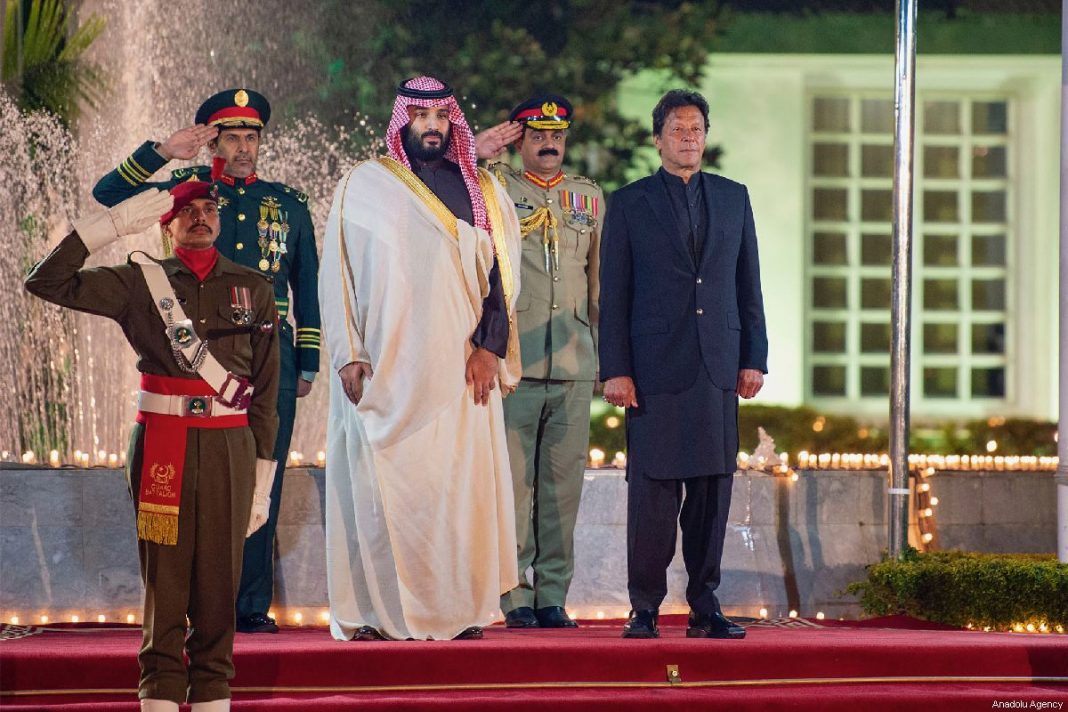Senior government officials from Saudi Arabia, Bahrain, Jordan, Kuwait, and Pakistan have agreed to launch a new global organization to strengthen cooperation and innovation in the growth of the ‘digital economy.’
The new organization will be called the Digital Cooperation Organization (DCO). It will work to cement cooperation in the digital economy sector within the participating nations.
Abdullah Al-Swaha, the Saudi minister of communication and information technology, spoke about the need for collective measures to fortify the countries’ digital economy.
“We are joining hands together toward a commitment to drive consensus on digital cooperation to make sure that we seize an opportunity for our youth, our women and our entrepreneurs with the ambition to grow our combined digital economy to $1 trillion in the next three to five years,” he said.
Read more: Pakistan’s social media banning spree mainly hurts digital employment opportunities.
He further added that “Our future prosperity will depend on the digital economy, but it can only reach its full potential if we can make governments work together collectively with businesses and entrepreneurs so they can survive and thrive, expand their depth into current markets and open doors for everyone into new ones.”
He also said that one of the prime lessons in the year 2020 was realizing the digital economy’s lucrative nature. He said that economies are as strong as their digital economies.
#Saudi Arabia, Bahrain, Jordan, Kuwait and Pakistan launch the Digital Cooperation Organization (@dcorg), aimed at strengthening cooperation and accelerating the development of the #digital economy.
Find out more about the new #DCO initiative here.https://t.co/ZXsMd9HmfC
— Al Arabiya English (@AlArabiya_Eng) November 27, 2020
The new global body was announced in a digital launch event yesterday.
The event was attended by various well-known individuals in the field, such as International Telecommunication Union Secretary-General Houlin Zhao and President of the World Economic Forum, Borge Brende.
Zhao insisted that a collective effort was the way for the digital economy and thus, a ‘holistic’ vision to facilitate and catalyze digital economies. At the same time, Brende too stressed the need for government intervention in encouraging the digital economy.
Read more: Digital payments flourish in Pakistan.
“I think the GCC countries and governments have been extremely successful in doing so; they set up a lot of funds. They injected a lot of funds into startups and helped them really grow and led to the different success stories that we hear about today,” he said.
The event also featured a group of leading private sector startup founders from the region who discussed their role in driving digital transformation. They shared opinions on potential opportunities in crowdsourcing ideas and innovations between governments and the public and challenges regarding regulations, workforce skills, global competition, infrastructure, and funding.
Panelists also highlighted the necessity of working together, whether between the different institutions within each country or between governments globally, to overcome hurdles and begin to envision a more resilient shared future.
Importance of the digital economy
The digital economy is developing swiftly worldwide. According to Digital Birmingham, the digital economy has been the leading driver of innovation, competitiveness, and growth in the past decade.
Innovations such as cloud computing, mobile web services, smart grids, and social networking on social media are changing the business landscape. They will benefit any nation that hitches a ride on the digital innovation train.
These trends enable more than just technological innovation. They spur innovation in business models, business networking, knowledge transfer, and international market access.
Read more: Pakistan’s journey towards digital transformation
In Pakistan, revenues in the eCommerce market reached around US$3,904m in 2020, as per Statista. Revenues showed an annual growth rate (CAGR 2020-2025) of 13.1%, resulting in a projected market volume of US$7,236m by 2025.
The market’s largest segment is Fashion, with a projected market volume of US$2,748m in 2020. User penetration will be 21.6% in 2020 and is expected to hit 26.9% by 2025. The average revenue per user (ARPU) is expected to amount to US$81.94.
Furthermore, in 2018, the percentage of consumers who made at least one purchase online in the previous 12 months grew to 93% of internet users in the U.S., 97% in the UK, and 92% in China.
GVS News Desk














